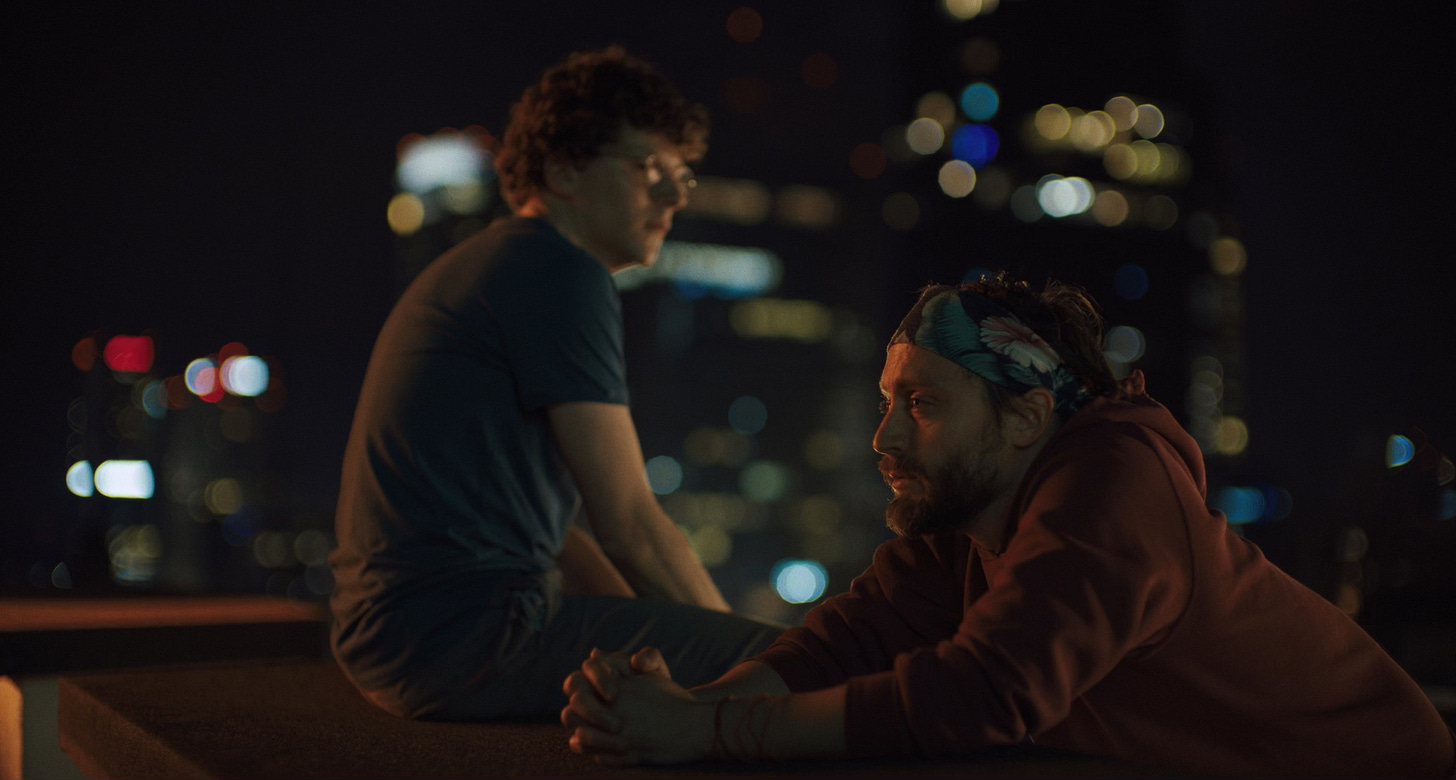A Real Pain
A great performance in a good movie.
“This will be a tour about pain.” The guide’s opening statement is both a warning and a promise.
Dave (Jesse Eisenberg, who also wrote and directed) and Benji (Kieran Culkin) are two cousins on a heritage tour, retracing their family history. Their grandmother had lived in Poland and survived the Holocaust, making her way to the United States “despite everyone in the world trying to kill her,” as Benji puts it. Their tour group is small—a guide and just a handful of other people—which lends the trip a sense of intense intimacy, an opportunity for each person to open up about their own painful connections to history. Intimacy and the possibility for pain are interlinked: to be intimate is to be vulnerable, to open yourself up to someone you love hurting you far worse than a stranger might.
Benji is the titular “real pain,” a troubled character with a manic-depressive streak. He’s intensely charming until he no longer wants to be, at which point he abandons all social niceties. Dave, for his part, spends a significant portion of the trip handling Benji as though he’s fragile. The two are cousins, after all, and they have to share a hotel room on top of everything. Eisenberg plays Dave with the nervous stiffness he’s known for in other roles; here, that persona suits a character whose concern for his cousin’s well-being and his desire to smooth over social interactions bump up against each other. His irritation with and love for his cousin are at war with each other, just as Benji is at war with himself.
When we first meet Benji, he’s people-watching at the airport, a look of open curiosity on his face. He is an inviting presence until something rubs him the wrong way, and the wrong way is often hard to predict. Culkin carries himself with an easy openness to the world, agreeable and breezy until the irritation takes hold again. “When you walk into a room, you light it up,” Dave tells him. “And then you, like, shit on everything inside of it.” Benji’s turns are sudden, unpredictable, and believable; they are bewildering to everyone around him, and it’s clear that he is a little out of control, unable to fight the swings whenever they take him.
Eisenberg’s direction takes these swings in stride, almost too steadily: the force of the film stems from Culkin’s performance, while the direction and cinematography serve almost to blunt it. We are treated to insert shots of picturesque town spaces in Poland as the tour progresses. The guide names the places that used to be there: the oldest synagogue in Poland, a Jewish bakery, a school, all of them replaced by other structures and businesses. History has paved over atrocity. The technique brings to mind Steve McQueen’s documentary from last year, Occupied City, which also presents direct addresses to modern-day audiences in voiceover that tells who had lived there. The difference is that McQueen’s documentary tells us precisely what happened: the violence committed in the Holocaust.
A Real Pain shows that history becoming real for its characters—Benji in particular is undone by the display of real people’s shoes piled high at a former concentration camp—but Eisenberg’s hands-off approach to both history and to the character of Benji serves to dull the edge slightly. Ultimately, the film is a sweet and steady character portrait: a movie that loves its characters both for and despite their flaws.—Sarah Welch-Larson
★★★☆
A Real Pain is in select theaters nationwide.



